Watched March 26 - April 1, 2007
 Man on the Flying Trapeze (Clyde Bruckman, 1935)
Man on the Flying Trapeze (Clyde Bruckman, 1935) One of Fields' very greatest films. The high point here is probably the opening segment -- involving (among other things) kegs of bootleg applejack, singing burglars (and police), a hectoring spouse, a very unmotivated Fields, in-laws from hell. A must-see.
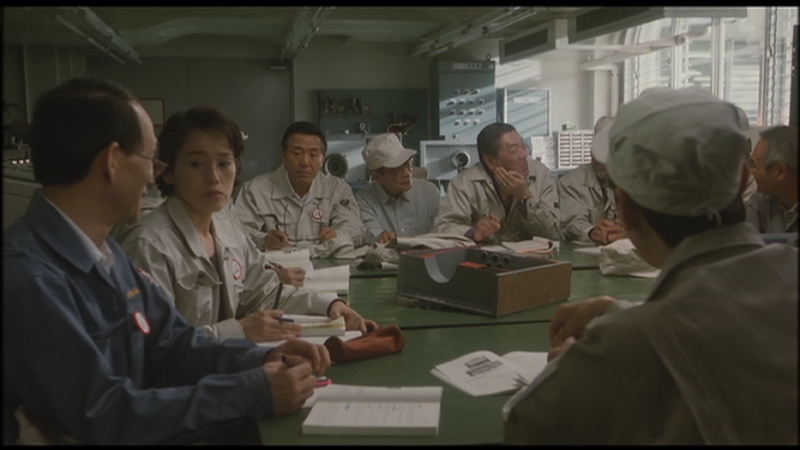 Gakko III / The New Voyage (Yoji Yamada, 1998)
Gakko III / The New Voyage (Yoji Yamada, 1998)Earnest, didactic, sentimental. In some cases, these might be viewed as negatives -- but this is the kind of film that Yamada puts his heart into.
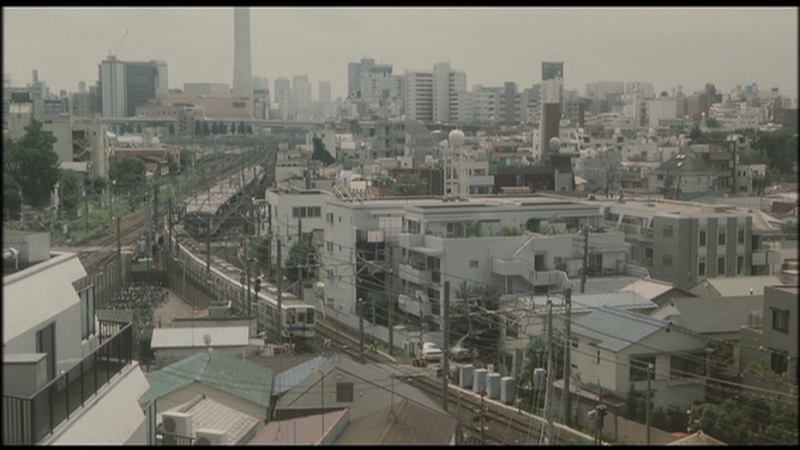 A woman with an autistic son is laid off from her job as an in-house accountant. Initially at a loss, she learns she can enter a free training program for office building maintenance workers (covering everything from heating system maintenance to fluorescent bulb changing).
A woman with an autistic son is laid off from her job as an in-house accountant. Initially at a loss, she learns she can enter a free training program for office building maintenance workers (covering everything from heating system maintenance to fluorescent bulb changing). 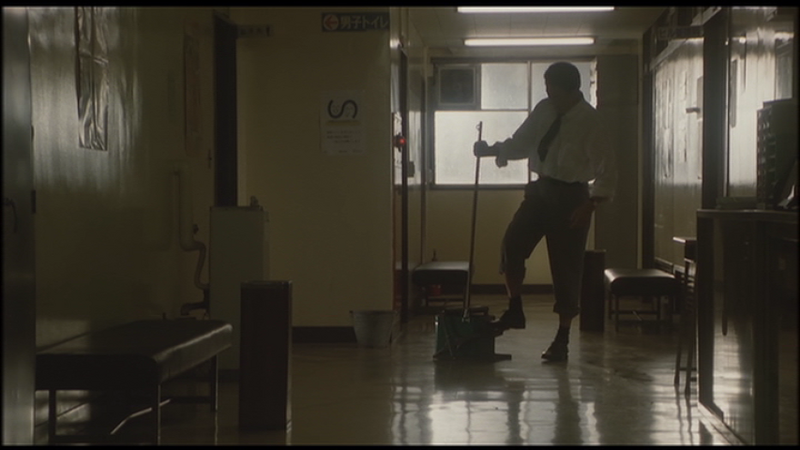 Her classmates cover a wide range of backgrounds -- but she is most drawn to a down-sized corporate executive (but only after he finally sheds his illusions that his connections will bring him a new corporate job). Melodramatic -- of course, but I liked it.
Her classmates cover a wide range of backgrounds -- but she is most drawn to a down-sized corporate executive (but only after he finally sheds his illusions that his connections will bring him a new corporate job). Melodramatic -- of course, but I liked it. About Love: Tokyo (Ten Shimoyama, 2005)
About Love: Taipei (YEE Chin-yen, 2005)
About Love: Shanghai (ZHANG Yibai, 2005)
T
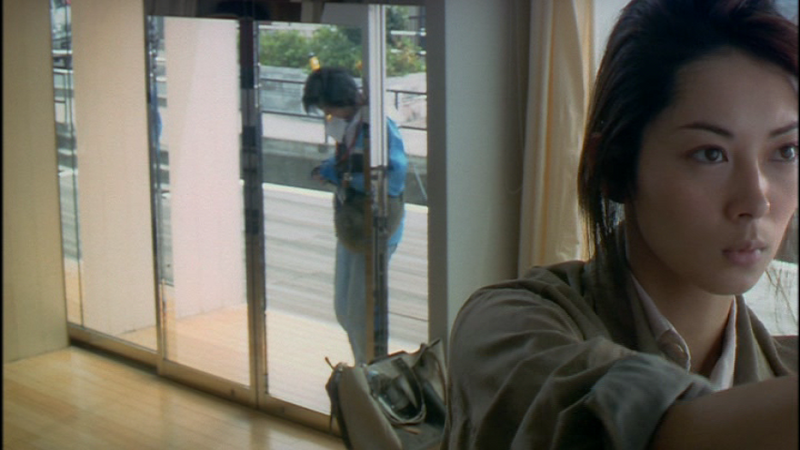 he first and second segments of this omnibus film were, respectively, cute and entertaining (Tokyo) and mostly rather strange (Taipei). All three involve connections between a pairing of a Chinese and a Japanese (of opposite sex). The first involved a male Chinese animator-in-training and a female Japanese painter -- who keep almost meeting. Th
he first and second segments of this omnibus film were, respectively, cute and entertaining (Tokyo) and mostly rather strange (Taipei). All three involve connections between a pairing of a Chinese and a Japanese (of opposite sex). The first involved a male Chinese animator-in-training and a female Japanese painter -- who keep almost meeting. Th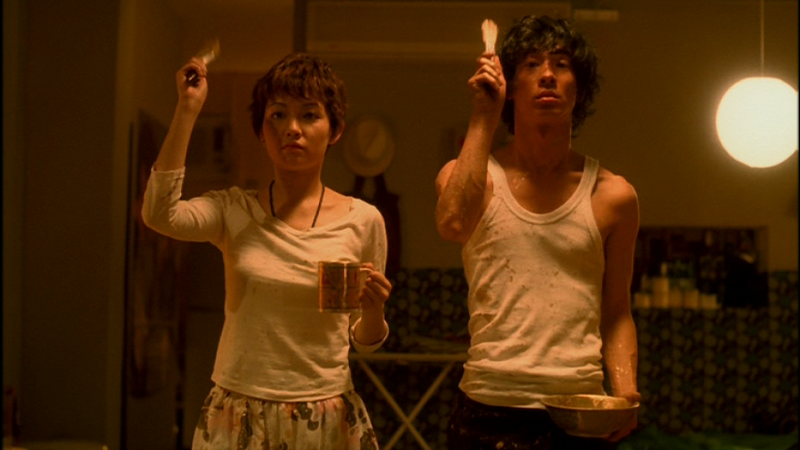 e second involved a Japanese man and a Taiwanese woman (pop star Mavis Fan), neither of whom show much sign of either gainful employment or financial constraints.
e second involved a Japanese man and a Taiwanese woman (pop star Mavis Fan), neither of whom show much sign of either gainful employment or financial constraints. T
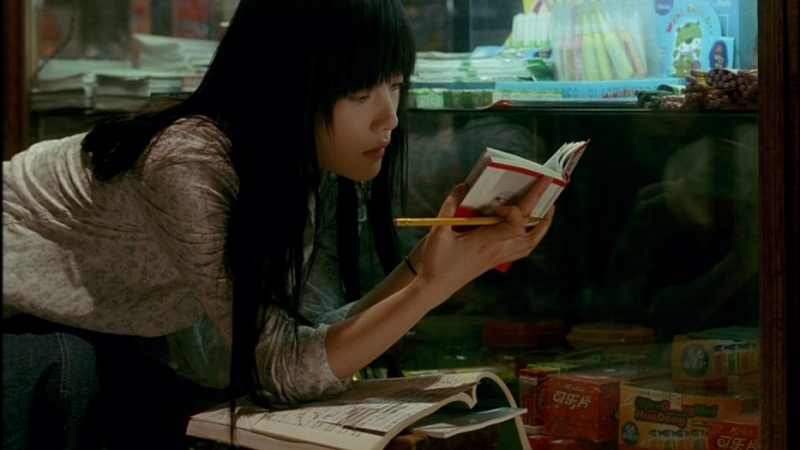 he third segment, "Shanghai", outshines its predecessors by far. Takashi Tsukamoto has come to Shanghai to learn Chinese by interacting in a real setting (working as a waiter for a Japanese-speaking cafe owner and taking a room over a corner store).
he third segment, "Shanghai", outshines its predecessors by far. Takashi Tsukamoto has come to Shanghai to learn Chinese by interacting in a real setting (working as a waiter for a Japanese-speaking cafe owner and taking a room over a corner store).  LI Xiaolu (previously in "Xiu Xiu, the Sent Down Girl") is the high school-aged daughter of TT's landlady. The girl is fascinated by her guest and falls in love -- while TT is oblivious
LI Xiaolu (previously in "Xiu Xiu, the Sent Down Girl") is the high school-aged daughter of TT's landlady. The girl is fascinated by her guest and falls in love -- while TT is oblivious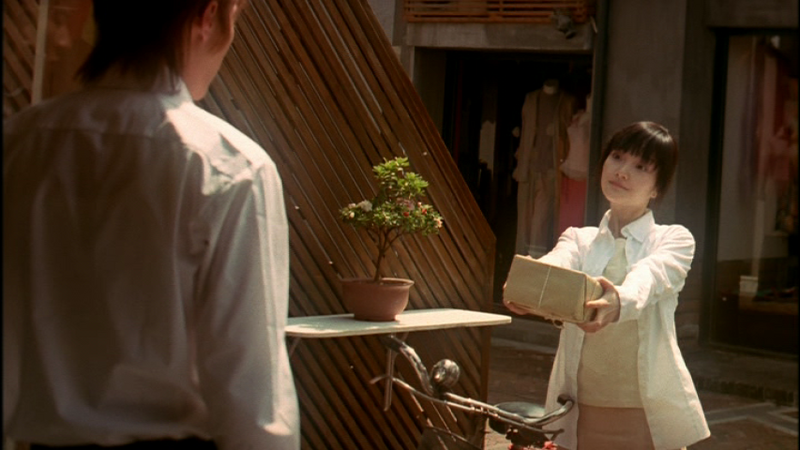 (having just received a "Dear John" postcard from his Japanese girlfriend, who has flown off to Barcelona -- on her own quest). It is beautifully shot and acted -- with a gently bittersweet tang reminiscent of the work of Takahata's films. Only 34 minutes or so -- but absolutely wonderful.
(having just received a "Dear John" postcard from his Japanese girlfriend, who has flown off to Barcelona -- on her own quest). It is beautifully shot and acted -- with a gently bittersweet tang reminiscent of the work of Takahata's films. Only 34 minutes or so -- but absolutely wonderful. Y
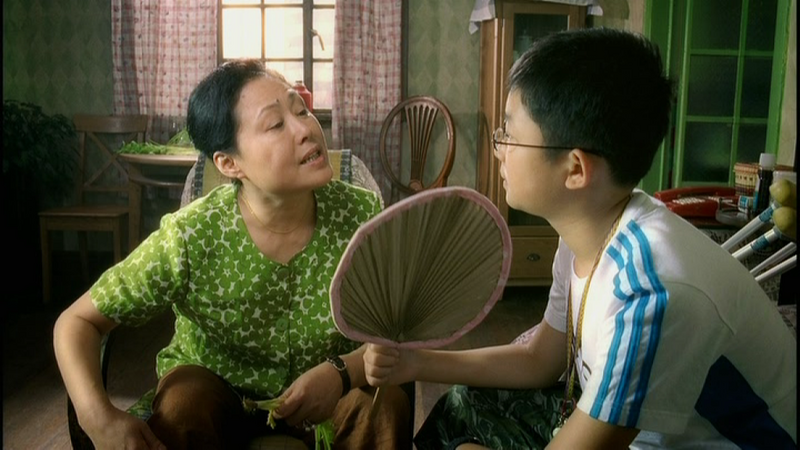 i ma de hou xian dai sheng huo / The Postmodern Life of My Aunt (Ann Hui, 2006)
i ma de hou xian dai sheng huo / The Postmodern Life of My Aunt (Ann Hui, 2006) Another fine film by Ann Hui. SIQIN Gaowa fled her run-down home (and family) in Manchuria years before -- lured by the freedom and chance of success offered by Shanghai. She is visited by a young nephew (on crutches, with one leg in a cast), who proves a bit of a problem to handle -- e
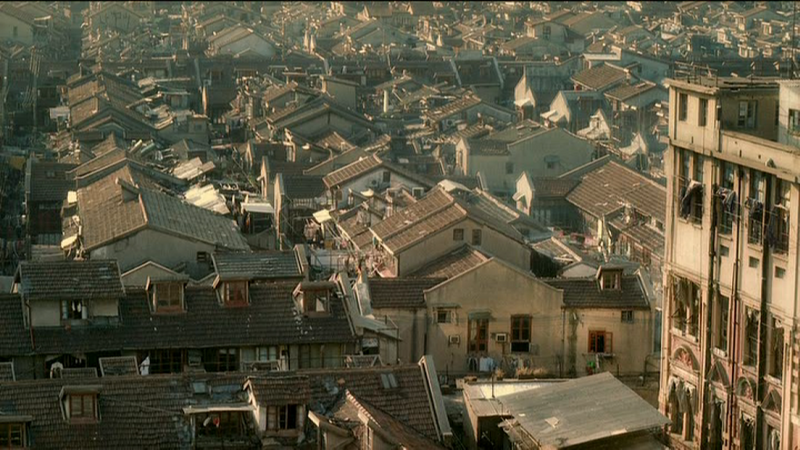 specially once he makes the acqauntance of Fei Fei (a street-wise girl just a bit older than he is). After her nephew is finally shipped home, she crosses paths with a suave and dapper gentleman (CHOW Yun Fat) -- who would appear to be more debonair than worthy of trust.
specially once he makes the acqauntance of Fei Fei (a street-wise girl just a bit older than he is). After her nephew is finally shipped home, she crosses paths with a suave and dapper gentleman (CHOW Yun Fat) -- who would appear to be more debonair than worthy of trust. 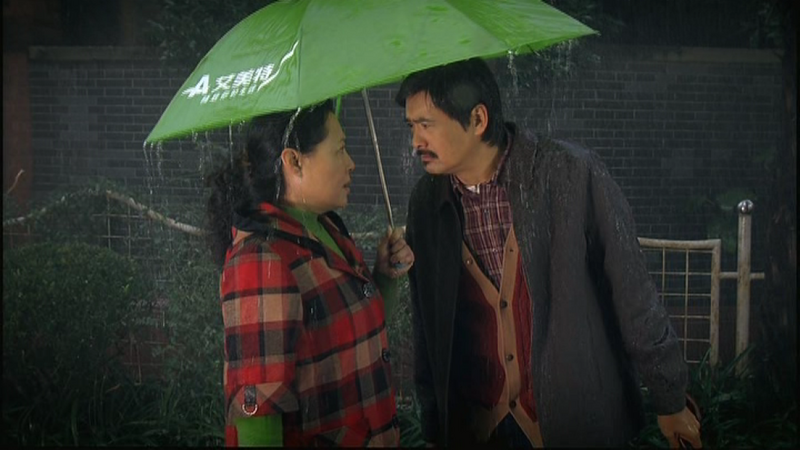 When she injures herself in a fall, she is forced to call on the aid of the family she abandoned long ago -- and her now grown-up daughter (Vicki ZHAO Wei) is (not surprisingly) not exactly bursting with daughterly devotion -- when she and her rather dismal boyfriend come to Shanghai.
When she injures herself in a fall, she is forced to call on the aid of the family she abandoned long ago -- and her now grown-up daughter (Vicki ZHAO Wei) is (not surprisingly) not exactly bursting with daughterly devotion -- when she and her rather dismal boyfriend come to Shanghai. 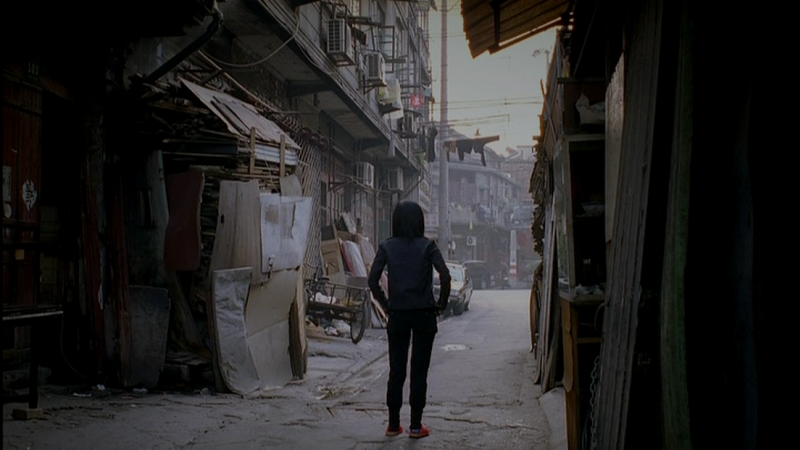
As is often the case, Hui's work calls to mind the work of Ozu and Naruse -- and like a number of Ozu films, the tone of this film shifts slowly but inexorably over its course -- starting in comedy territory and winding up .... somewhere else. Perhaps not as perfect as "July Rhapsody", but very very good overall.
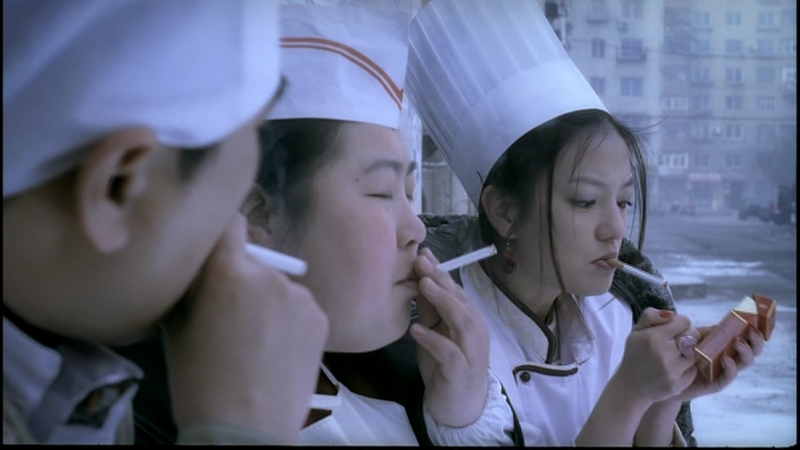
Aju teukbyeolhan sonnim / Ad Lib Night (LEE Yoon-ki, 2006)
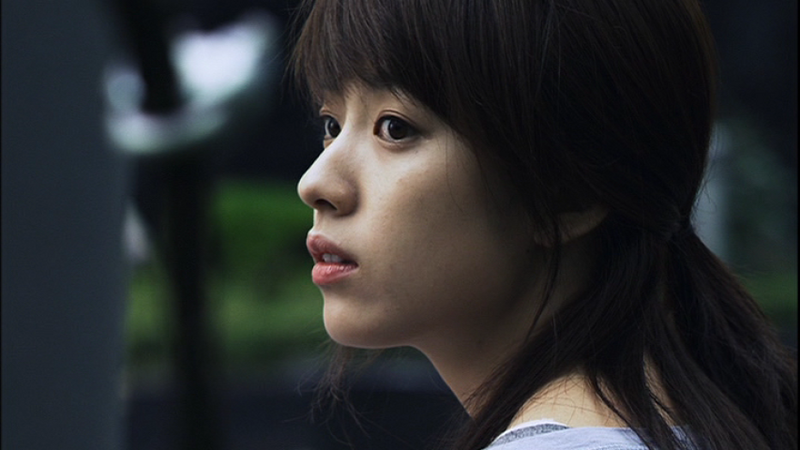 Lee's first film "This Charming Girl"was a low-key triumph, his second "Love Talk" was (mostly) a noble failure (trying to deal with the travails of Korean expatriates working in the United States). Third time seems to be a charm here -- as this is even better than Lee's first. Young (late teen-ish) HAN Hyo-ju is loitering around a Seoul street corner, waiting for a "date" to arrive -- when she is accosted by a group of young provincial men. I
Lee's first film "This Charming Girl"was a low-key triumph, his second "Love Talk" was (mostly) a noble failure (trying to deal with the travails of Korean expatriates working in the United States). Third time seems to be a charm here -- as this is even better than Lee's first. Young (late teen-ish) HAN Hyo-ju is loitering around a Seoul street corner, waiting for a "date" to arrive -- when she is accosted by a group of young provincial men. I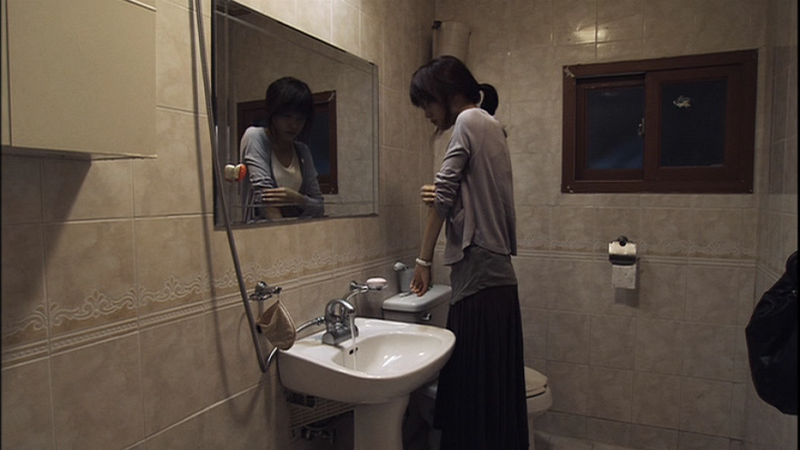 t turns out that they are neighbors of a man who is dying, who wishes to reconcile with his run-away daughter before he dies. They have not seen the daughter for several years, but are convinced that "The Girl" must be the missing daughter. When she (more or less) convinces them that they are mistaken, one of the searchers decides to offer her a job pretending to be the daughter, arguing the dying man, who is being fed a heavy dose of morphine for his pain, will never notice that she isn't the real daughter. Initially, she turns the offer down, but impulsively re-considers.
t turns out that they are neighbors of a man who is dying, who wishes to reconcile with his run-away daughter before he dies. They have not seen the daughter for several years, but are convinced that "The Girl" must be the missing daughter. When she (more or less) convinces them that they are mistaken, one of the searchers decides to offer her a job pretending to be the daughter, arguing the dying man, who is being fed a heavy dose of morphine for his pain, will never notice that she isn't the real daughter. Initially, she turns the offer down, but impulsively re-considers. 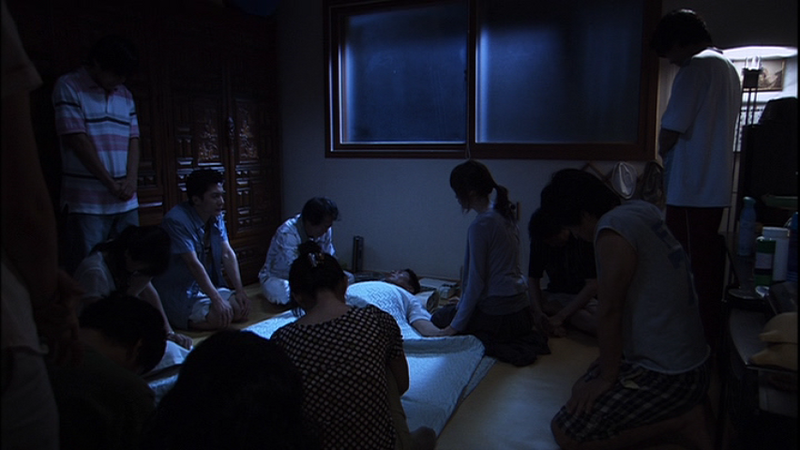 On arrival at the town of the dying man, neighbors and relatives are a bit non-plussed (and one elderly female relative refuses to believe that she is NOT the long lost runaway). While the rural village is not idyllic, neighbors and relatives bicker as the man lies dying (near comatose) in the next room, the Girl seems touched by the depth of the interconnections between the people (something which the runaway daughter apparently found unendurable -- according to her childhood boyfriend).
On arrival at the town of the dying man, neighbors and relatives are a bit non-plussed (and one elderly female relative refuses to believe that she is NOT the long lost runaway). While the rural village is not idyllic, neighbors and relatives bicker as the man lies dying (near comatose) in the next room, the Girl seems touched by the depth of the interconnections between the people (something which the runaway daughter apparently found unendurable -- according to her childhood boyfriend). 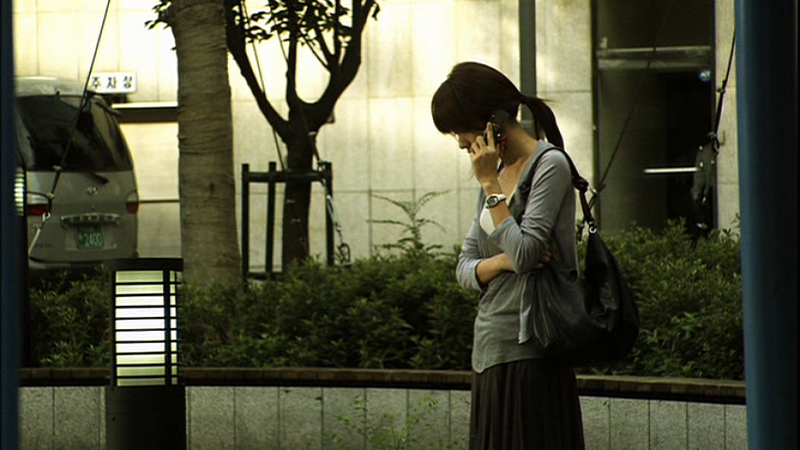 Having played her role more than satisfactorily, the missing daughter's friend drives her back to Seoul -- and the Girl is able to share some of her own troubles). One does learn the young woman's identity at the end -- which is very sad but maybe a bit hopeful. Score another triumph for the cinematic heirs of the spirit of Ozu and Naruse. One of the best films of 2006.
Having played her role more than satisfactorily, the missing daughter's friend drives her back to Seoul -- and the Girl is able to share some of her own troubles). One does learn the young woman's identity at the end -- which is very sad but maybe a bit hopeful. Score another triumph for the cinematic heirs of the spirit of Ozu and Naruse. One of the best films of 2006.
Comments